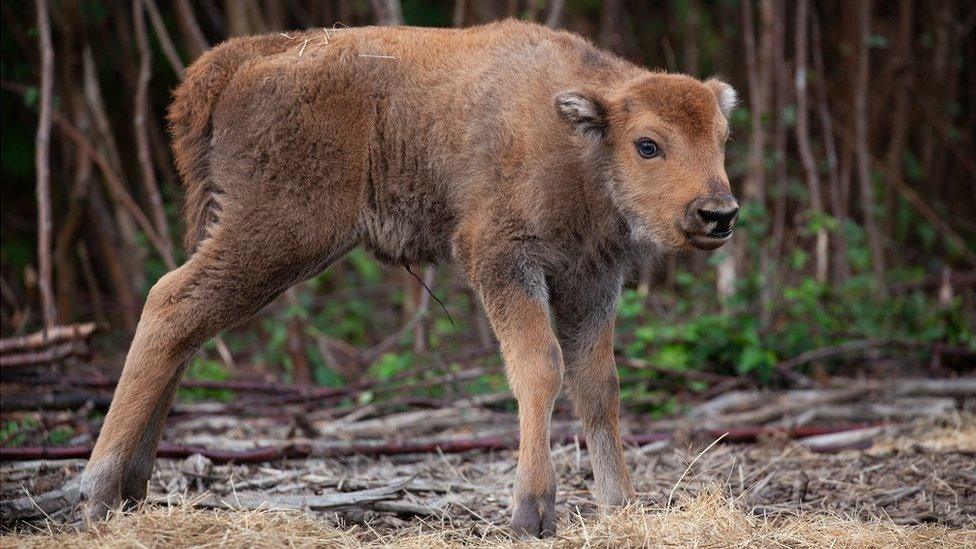New bison bridges to be built in Kent woodland
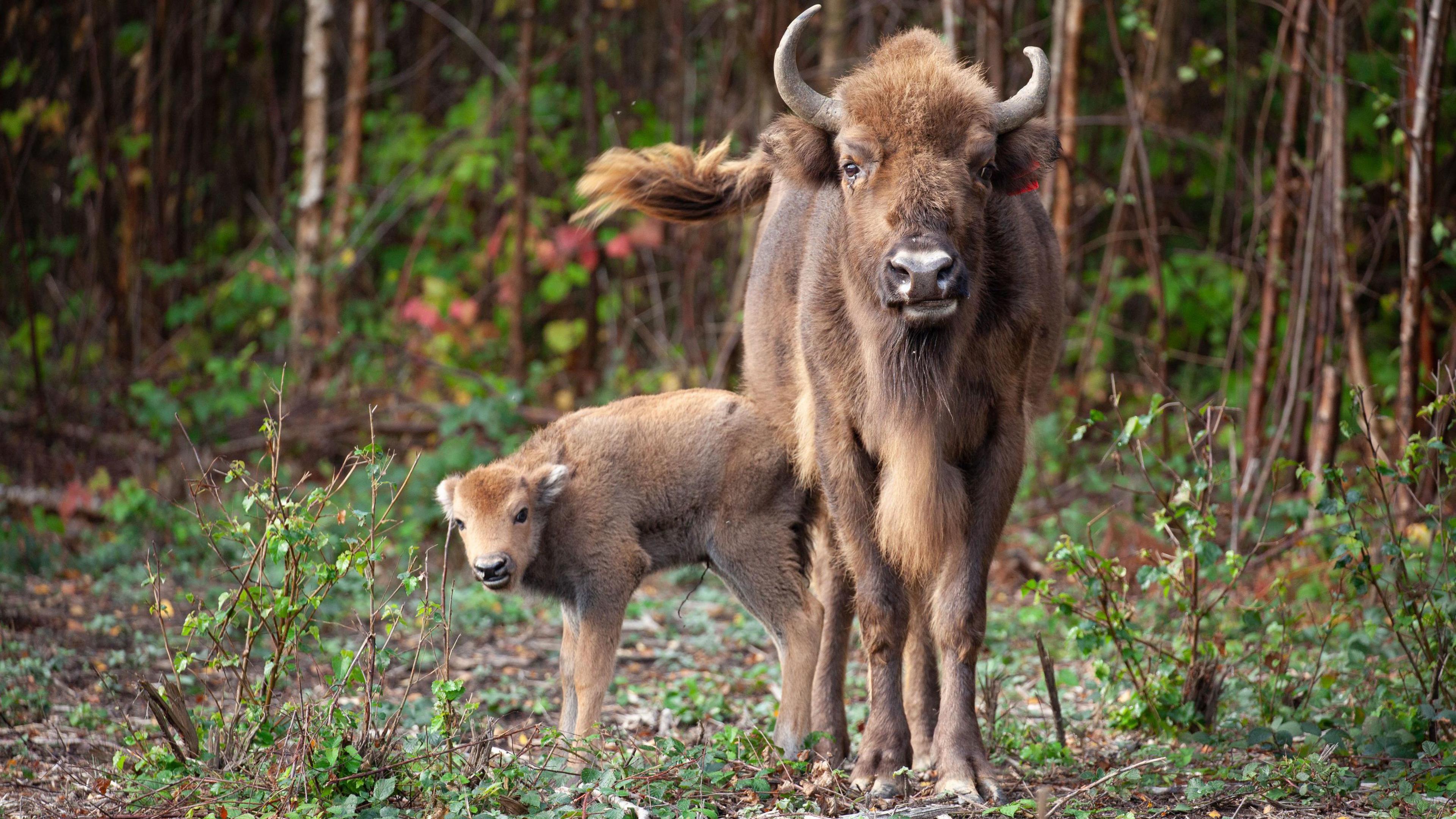
Bison have been part of the Kentish woodland since 2022
- Published
How did the bison cross the road?
No, it's not the start to a terrible joke - it's a question that has finally been answered by a nature reserve in Kent.
New bridges are being built to keep the animals and humans apart in a woodland on the outskirts of Canterbury.
More animal stories
Amara the Rhino has special surgery to fix her leg
- Published19 September 2024
How recycled towels are a helping wildlife charity
- Published20 September 2024
Cat wins award for helping students with exam nerves
- Published19 September 2024
They're the first of their kind in the UK, and will help tourists to navigate the area while visiting, ensuring that they stay out the way of Europe's heaviest land mammals.
They're classed as dangerous wild animals in UK law, but walking above them over the new bridges will help people admire the bison from a safe distance.
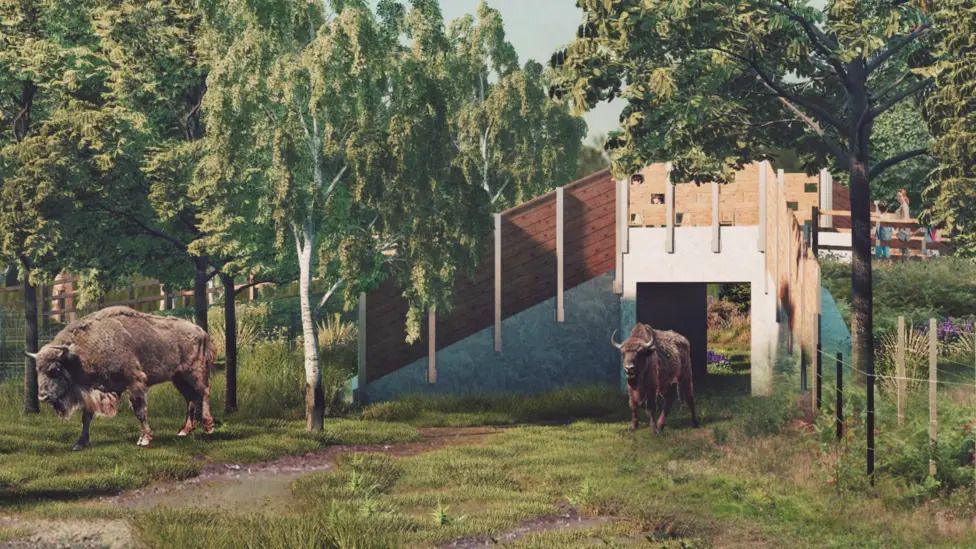
This is a computer generated image of what the bridges will look like when built, with bison roaming underneath
Bison basics
There are two species of bison - the European bison, and the American bison
There are thought to be around 6000 European bison in the wild
They're mostly found in Poland and Belarus
The can reach top speeds of 35 miles per hour
They've classed as vulnerable, and their populations have declines as a result of farming and deforestation
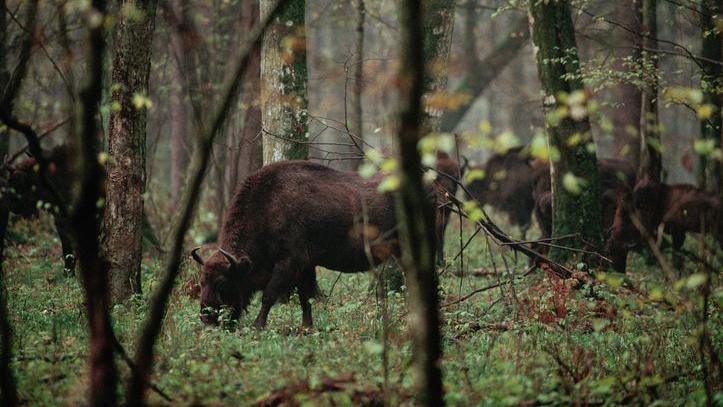
European bison prefer living in the woods, like this in Bialowieza Forest in Poland
Good news for Kentish bison
The bison were first brought over from Europe in July 2022 to West Blean and Thornden Woods as part of a wildlife project run by the Kent Wildlife Trust and Woodland Trust.
The project also included releasing Iron Age pigs, Exmoor ponies and longhorn cattle into the area.
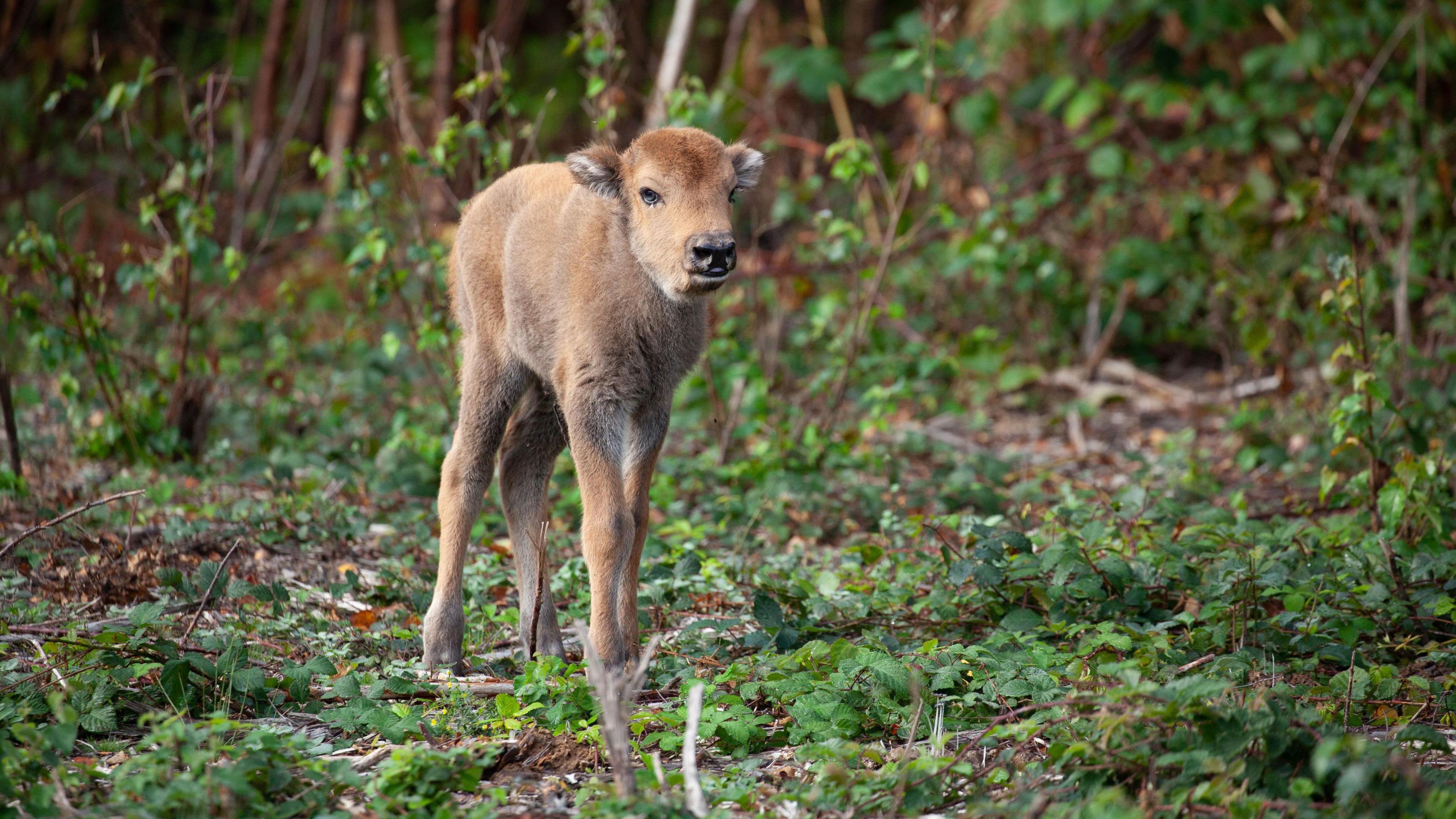
This is the first bison calf that was born in the Kentish woods
The bison have done really well there - in fact, their population has doubled in size.
That's why £1 million is being spent on this new project, which will consist of four bridges.
The bridges will allow the bison to roam 200 hectares (494 acres) of land, rather than 50 hectares (123 acres) as they do currently, without having to close footpaths to the public.
Simon Bateman-Brown, from the Kent Wildlife Trust (KWT), said: “Once at the top, people will have a great vantage point to potentially catch a glimpse of the animals.”
- Published19 July 2022
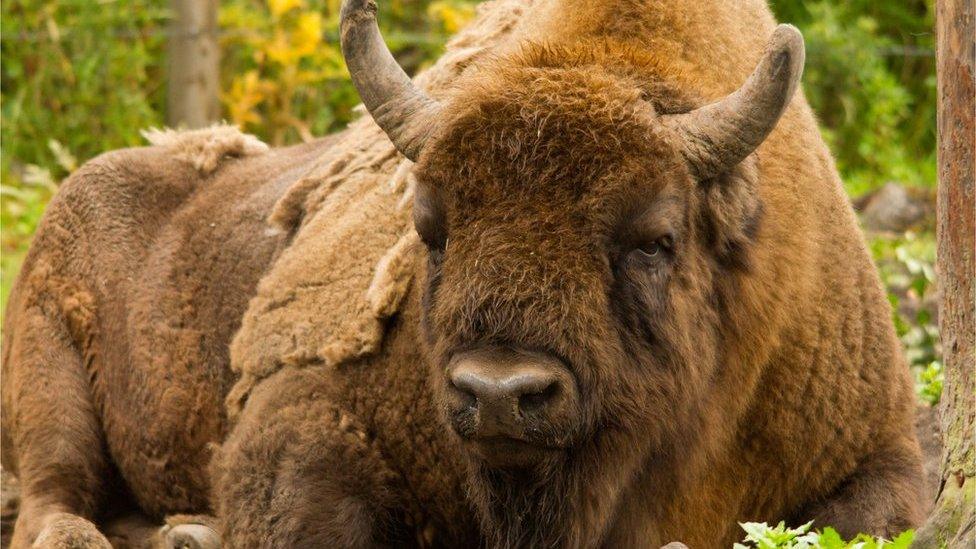
- Published23 October 2022
